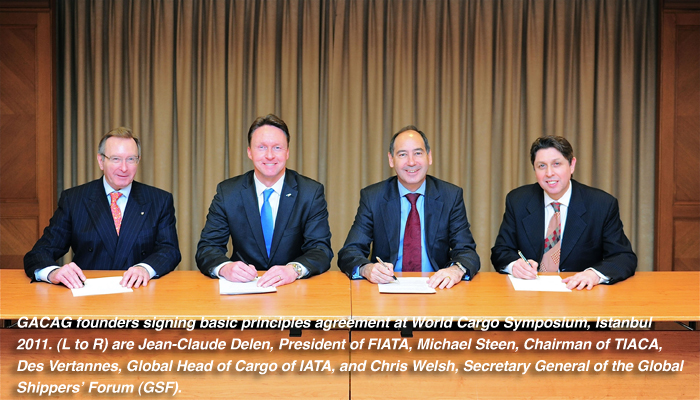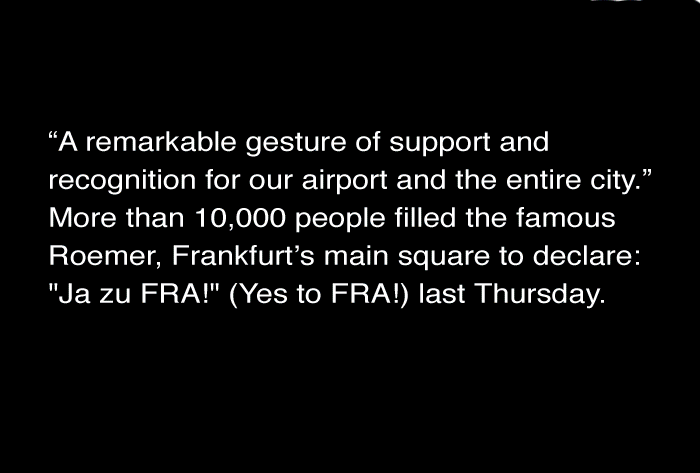| 
No one can say that the Global Air Cargo
Advisory Group (GACAG) is not trying.
The question is whether or not anybody
is really listening and if anything will change in air cargo once the
PR dust settles.
The latest word from GACAG was issued
Friday March 2, fresh from Roche Public Relations, a UK company run
by ex BA PR stud Jamie Roche. The message carried with it the faint
whiff of being timed to impress, or perhaps more charitably put, "motivate"
air cargo before the World Cargo Symposium in Kuala Lumpur, scheduled
to begin in less than a week.
Maybe we are confusing what appears to
be an honest effort by GACAG, with all the pre-WCS pablum e-mails that
we are getting lately?
Nevertheless, we make the point to emphasize
that, in a world where appearances count, GACAG must accept that (minus
traceable, tangible results) folks might wonder when an additional position
paper comes into being.
Since it was organized with lots of hoopla
and hope nearly two years ago at TIACA AMS, GACAG has unleashed a paper
trail of press releases and position papers, which leaves many questioning:
What is changing because of the actions
of GACAG?
Maybe it’s time for everyone in
air cargo to join the old lady in the hamburger commercial from the
1980s that looked at her sandwich and asked:
"Where's the beef"?
There has been quite a lot of conversation
about the name GACAG.
People either love it as an acronym or
hate it.
But we think that alongside (and somewhat
in league) with GACAG, there is a larger group at play here that we
have decided to call GIFT.
“GIFT” consists of GACAG,
IATA, FIATA, and TIACA.
And GIFT keeps on giving.
 |
This latest call to ICAO, WCO, and
national regulators to adopt a standard Consignment Security Declaration
is a case in point.
The roots go back to IATA Recommended
Practice 1630, adopted at the last World Cargo Symposium, which took
place in Istanbul during March 2011.
Security being the driver that it is,
IATA was intent on delivering a strong stand on the subject.
A resolution is binding on members, but
what emerged for the security declaration was a much weaker recommended
practice, which, as the name implies, is just that.
Be it as it may, RP1630 refers back to
action taken by ICAO and its member states, acknowledging the IATA Operations
Committee and also amendments to the Cargo Agency Conference rules on
security.
Taken at arm’s length with history
as the lesson, it all seems rather byzantine, and now one year later
the GACAG call this week seems a rehash call to none other than ICAO
to adopt the very same declaration.
GACAG encourages and supports processing
the Consignment Security Declaration in electronic form and then somewhat
surprisingly for a high level strategic forum, gets into the weeds and
“recommends that the standardized information included on the
Consignment Security Declaration be limited to the following critical
elements…” going into full descriptive language and repeating
in verbiage what is organized in neat boxes on the adopted IATA form,
or in its electronic equivalent, which points back to the web site:
www.iata.org/security-declaration.
What is the point of this loop?
Who knows?
Last year, ICAO’s Secretary General
noted that securing supply chains “are a customs issue.”
The ICAO Aviation Security Branch Chief at that time declared:
“We are working very closely with
the World Customs Organization… because the world’s custom
system has increasingly provided for electronic data interchange."
Deconstructing the aforementioned statement
a bit reveals that it is far removed from the real world; “the
world’s custom system”—the implication can easily
be misinterpreted to make one believe there was such a thing, or that
each and every national customs system follows a single global standard,
which is simply not the case.
Much work has been done in IATA to map
out a business process for this security declaration, charts and all,
focusing on the message flow, which again depends entirely on the forwarder
generating and transmitting a FWB message to the carrier in the first
place.
We seem to recall that this is an everlasting
war raging on unabated.
This is the same FWB wherein postal codes
often get input as, for example,“00000,” and are not properly
content-validated at source (the postal code is alpha-numeric), yet
are also used by customs.
As if there weren’t enough options
which open the door to a slew of participant specific alternatives,
which deviate from and diminish any standard, sure enough the security
information can also be included in a FHL (consolidation) message, subject
to it being “bilaterally agreed between the parties.”
Both the RP and the Business Process talk
about “known shipper” and “regulated agent,”
yet the October 2010 debacle surrounding the highly explosive printer
cartridge shipment from Yemen to a synagogue in Chicago, which passed
security and was found in the nick of time because of an informer tip,
was caused by a shipment tendered to an express carrier and involved
no forwarder, i.e. “regulated agent,” and there was no “known
shipper.”
But at the heart of the matter today is
GACAG, and all our hopes and dreams for a new level of cooperation and
universal understanding necessary to get things done.
Again, the individuals participating in
GACAG are high-level executives from many different countries who manage
billion dollar businesses, and we applaud and are grateful for their
yeoman effort to bring on change for the better in air cargo.
Given that level of executive power and
what is at stake right now, just six months short of being in business
for two years, GACAC has yet to step up and deliver more.
For example, how about some deadlines?
What is the realistic expectation that
this press release stands to accomplish when there are no timelines
associated with any of it?
Earlier, TIACA Times reported on its meeting
with the US CBP commissioner, Alan Bersin, and commented on its Air
Cargo Advance Screening (ACAS) pilot, primarily involving express carriers,
and now expanding.
TIACA stated that “GACAG believes that, at a minimum, the following
should be accomplished through electronic means: Record keeping and
archiving for all participating parties (shippers, forwarders, airlines,
etc.)”
There should be no requirement for participating
parties to print documents (for example, complete airline manifest and
supporting printout for all U.S. departed flights) unless by exceptions
(e.g. in case of an audit) and “printout of electronic records
should be accepted.” Compare that with the IATA Business Process
15.
“The Regulated Agent (freight forwarder, handling agent or self-handled
carrier) are able to produce on paper the consignment security declaration
for audit purposes.”
And the IATA text in Recommended Practice
1630 “3.12 Security Declaration, 3.2.1
The appropriate authorities and/or air
carriers may require for each shipment a security declaration to be
provided in paper, electronic format, or any other means that may be
allowed in the future.”
You need some serious word-parsing experts
to discern whether these statements indicate one and the same principle
or variations on a theme.
While clearly, having equivalent electronic
messages using an internationally standard format is a good thing, the
details are suspect and ripe for causing much confusion, and things
usually fall apart because the procedures surrounding electronic data
interchange leave much room for interpretation.
Either way, at this pace, just as we have
Cargo 2000 in the year 2012, GACAG stands a good chance of grinding
slowly for many more years to come while results can be measured in
decades.
Quite a contradiction in terms when speaking
of delivering goods at air speed!
But hope springs eternal, and we will
keep reading the pressers’ and hoping and reporting as the story
unfolds.
Ted
 |
|





